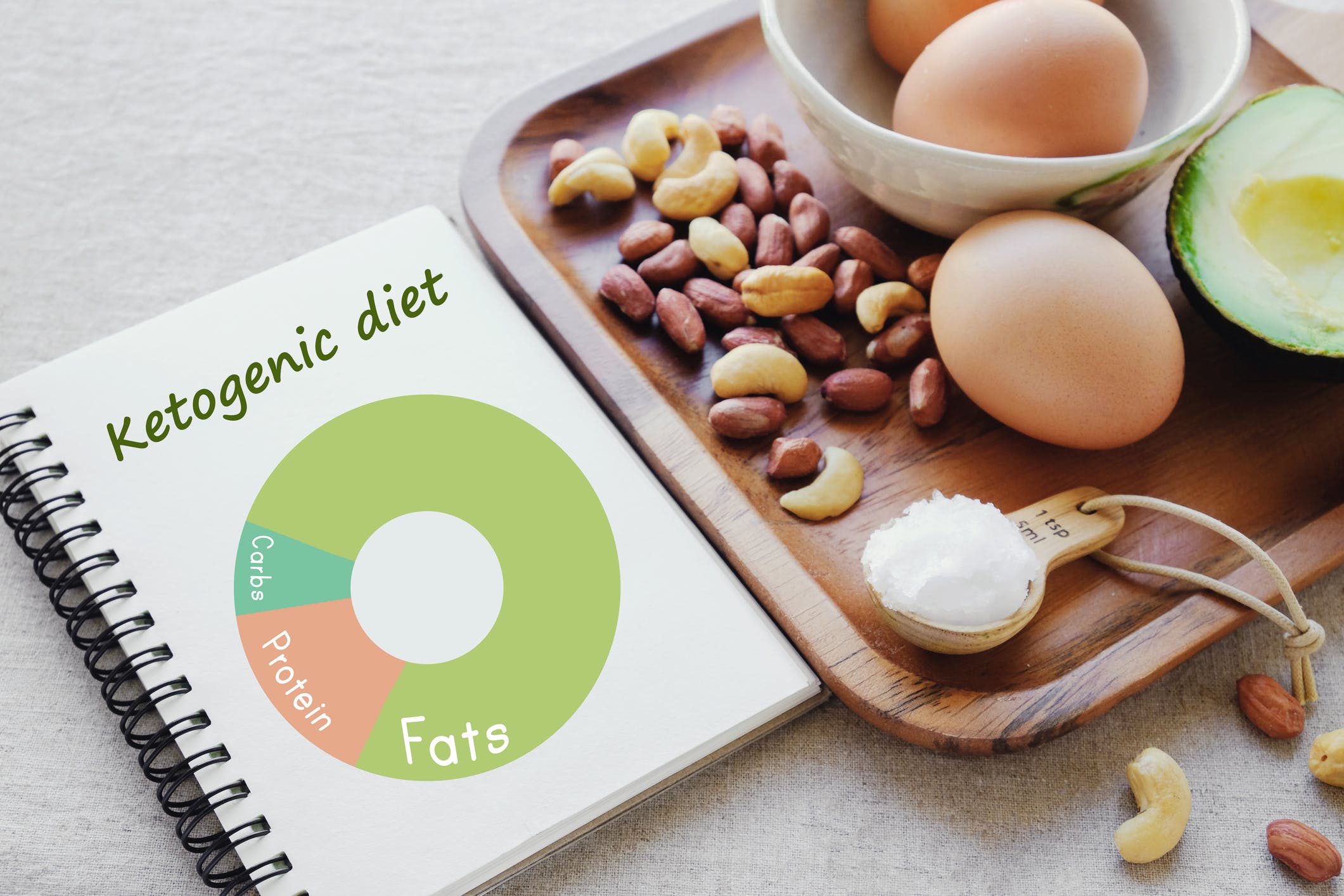Every year, the wellness world buzzes about the latest and greatest way to fuel your body for optimal health. Recently, the paleo diet took center stage, receiving praise from health practitioners and those following the paleo guidelines. As the paleo diet gained popularity, its more extreme version, the ketogenic diet, has also garnered some buzz. In this article, we’ll answer three main questions: what is the ketogenic diet, how does it impact health and is it something that you should try?
What is the Ketogenic Diet?
The ketogenic diet is an extremely low-carb, high fat diet, with about 25 grams of carbs or less per day. That’s the equivalent of a medium-sized banana, which provides about 27 grams of carbs. It was originally developed in the 1920s when researchers found that fasting had anti-seizure effects on the patients they were studying. What they observed was the body’s ability to metabolize or use fat as energy.
When you are eating a regular diet, the body is relying on carbohydrates or sugar sources for energy. When you fast or stop eating, the body only has a certain amount of stored carbohydrates, so it has to find a way to make energy from other sources. Without adequate carbs, the body will start to use stored fat to convert into energy called ketones. Our bodies are very adaptive and can switch from running on glucose (carbs) to ketone bodies (fat). Since you‘re changing the way your body metabolizes energy, you may experience flu-like symptoms in the first two weeks of the diet. This is often referred to as the “keto flu.”
Impact on Health
The keto flu sounds scary, so let’s look at how it actually impacts overall health. Switching metabolism from using sugar to using fat is a natural process, but there will be a period of adjustment as hormones and electrolytes rebalance. Historically, we’ve gone long periods of time without eating and our bodies were still able to provide us fuel and energy. So while this may feel uncomfortable initially, once the body switches over, it’s an effective way to create energy. Decreasing carb intake can also have anti-tumor effects on the body. Since many tumors feed on sugar, cutting off their food source can help shrink them. More research suggests that other benefits of the ketogenic diet aid with diabetes management, Alzheimer’s and weight loss.
Should You Try It?
The ketogenic diet is a challenging diet to adhere to not only because you feel physically sick for the first couple of weeks, but you are also significantly changing the way you eat. If you’re concerned about side effects and how this diet would impact your overall health, talk to your healthcare provider before making any dietary changes. I suggest trying a more paleo-based diet to start. This will help decrease your overall carbohydrate intake without the “flu-like” symptoms. The Whole30 approach is a great way to ease into a paleo diet. It focuses on whole, real, clean foods and has made many people feel better overall.
In some cases, I will suggest the ketogenic diet to people who are active and are looking to lose that last bit of fat. It can help you move through a weight-loss plateau; however, it should not be a long-term diet for most people. Whenever you limit a large macronutrient category, it’s best to do this under the guidance of a professional to assure you aren’t putting yourself at risk for any nutrient deficiencies.
Final Thoughts
As with anything nutritionally related, the results can vary from person to person. There are some who thrive on a very low-carb diet while others just can’t get to a place where they feel healthy. Genetics, environment, stress levels, nutrient levels and sleep all play huge roles in how dietary changes can impact your body. No matter how much we learn, research and use technology, the only person who knows what feels best for your body is YOU. Listen to your body, see how it reacts when you try new things, and be honest with what makes you feel better.
Nutritional information
Recipe: Creamy Green Strawberry Dream Serving in this recipe:1
- Calories: 236.6
- Total Fat: 3.6 g 5.5%
- Saturated Fat: 0.4 g 1.9%
- Cholesterol: 0 mg 0%
- Sodium: 358.7 mg 14.9%
- Total Carbs: 45.7 g 15.2%
- Dietary Fiber: 9.9 g 39.4%
- Sugar: 22.1 g
- Protein: 8.1 g 16.2%
- Vitamin A: 481.9% Vitamin C: 244.1%
- Calcium: 68.5% Iron: 26.1%
* Percent Daily Values are based on a 2,000 calorie diet. Your daily values may be higher or lower depending on your calorie needs.




























